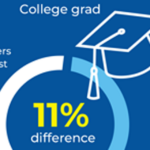
By Alexander Russo
There were some great education stories produced this past month, but also some flubs, large and small. Check it all out below – along with stories I’d like to see, job openings/hires, fellowship awards, and other industry tidbits:

BEST OF THE MONTH
The Baltimore Sun’s four-part school segregation series takes readers through an intensely frustrating school rezoning process and introduces them to a pair of high school friends, one black, the other white, who are having very different academic experiences at the same high school.
[Want more? Read about some of the behind-the-scenes reporting process from interviews with reporters Erica Green and Liz Bowie from last week. Then watch the pair discuss the reporting experience at about the 15:00 mark of the below video.]
The Hartford Courant also published a noteworthy series on integration this month, disabusing readers of the claim, repeated on shows like “This American Life,” that nearly half of Hartford students are attending integrated schools. The figure might be as few as 25 percent – not bad, but not half. Kudos to reporters Matt Kauffman and Vanessa De La Torre.
Other notable stories:
Kudos to Chalkbeat for checking back in on the opt-out movement. Early results suggest rates are down over all, but still high on Long Island.
The Desert Sun’s Brett Kelman wrote about a teacher whose sexual assaults on kids went on for decades despite reports from 15 students.
The PBS NewsHour ran a heartbreakingly vivid story about deported parents who relocate in border towns and watch their children’s school plays via Skype.
KPCC Los Angeles aired a sensitive story about well-intentioned white parents trying to foster integration in Pasadena schools… and having to learn some tough lessons about being allies of their black and brown counterparts.
There were a number of stories about Camelot, the for-profit education company that runs alternative schools, describing both mistreatment of student and poor educational outcomes. WBEZ ran one of them. ProPublica ran another. BuzzFeed ran a third.
And The Upshot (from the NYT) finished up the month with a remarkable data visualization about high-performing and relatively low-cost suburbs outside big cities, showing that some suburban districts are cheaper, just as close to the city, and do just as well as other more expensive or far-away options (below).

As several folks including Nieman Lab’s Joshua Benton noted, the data presentation far from perfect in terms of usability. And some folks like Jack Schneider have problems with the whole idea of presenting real estate costs, test scores, and commute times. But the data visualization still seems helpful to me, illustrating some academic and financial differences that parents and policymakers might not otherwise be able to grasp.
WORST OF THE MONTH
There were two notable journalistic “fails” this month, alas from two of my favorite education writers: Greg Toppo’s USA Today story about college completion rates and Heather Vogel’s ProPublica kickoff story in an ongoing series about alternative schools. (The second story in the series, noted above, struck me as much more successful.)
Both Toppo and Vogel — whose piece was published in late February and reviewed here in early March* — approached their topics through the lens of charter schools, which is an understandably newsy but problematic strategy when it leaves readers with a confused understanding of the problems being described. The vast majority of alternative schools are district-administered programs. Charter school completion rates for college are substantially better than the overall numbers for big-city districts where most charter school students are located.
[Read more of my thoughts about the USA Today story here and the ProPublica story here. The Education Writers Association’s public editor Emily Richmond asked ProPublica reporter Heather Vogel about some of the pushback in an interview here.]
March was also the month that we found out that a conservative advocacy group called PJNET (the Patriots Journalism Network) had been flooding Twitter with semi-automated anti-Common Core messages – without anyone (including journalists covering the Common Core debate) seeming to know. More about all that here. The Washington Post’s technology reporter broke the story here.
Other flubs:
The New York Times published a story about ESSA regs being rolled back that initially neglected to clarify that the underlying statutory requirements remain in effect. Though the error was corrected quickly, this is not the kind of “beat authority” that the NYT is aiming for.
The Wall Street Journal published a story about “rock star” librarians that focused predominantly on white men in their 30s.
There’s still not much diversity training for reporters covering education, as our contributor Tara Garcia Mathewson pointed out.
And there’s still not enough coverage of racial inequities in schools, according to a recent talk from the New York Times’ Nikole Hannah-Jones. (I dare you to tell her otherwise.)
STORIES I’D LIKE TO SEE
How about a story about families where one kid attends one kind of school and another attends something different? This seems like a fairly common real-life arrangement, illustrates an interesting parent-level view of the education experience, and gets us out of the binary way we sometimes write about education.
While we’re talking about parents, how about a good, hard look at affluent parents setting up residence temporarily in leafy, progressive enclaves like Park Slope, Brooklyn, in order to access coveted schools? It’s the rich person’s version of a faked utility bill. It’s also wildly unfair and hypocritical.
Other ideas: Cory Booker is for private school choice but voted against DeVos. He claimed he hasn’t flip-flopped, and perhaps that’s so, but nobody’s followed up on the NJ senator’s education priorities in the Trump era. Where’s he going to be on federal issues? What if any role does he have in Newark? Keep an eye on that guy, NJ and NY and national reporters.
One last thing: Reporters have been complaining here and there about lack of access to EdSec Betsy DeVos. How about someone writing a story about the problem, or – alternately – figuring out how to report on DeVos without her cooperation? Even better, how about spending more time covering the Hill’s interactions with the White House, where the real action is probably going to take place?
PEOPLE, PLACES, THINGS

The latest crop of Spencer Journalism Fellows has been announced. Congrats to Cara (Failure Factories) Fitzpatrick, Audrey (Hack Education) Watters, Nick (My Brother’s Keeper) Chiles, and Antonio Gois. You have just received education journalism’s Golden Ticket.
Erica Green has been hired away from the Sun by the New York Times, where she’s already begun writing national education stories based in the DC office. She joins Dana Goldstein, who’s reporting national education news from New York.
The paper has still not named a new education editor, though they announced the position was open last August. But they have hired a bunch of investigative reporters, including Mike Laforgia, one of the Tampa Bay Tribune folks behind Failure Factories, the big series about school segregation, and also the Houston Chronicle’s Brian M. Rosenthal, who exposed the illegal 12 percent special education cap in Texas.
Ramping up for the big conference at the end of May, the Education Writers Association has hired three new staff people, but isn’t set yet on how it’s going to cover Latino issues since the departure of Natalie Gross.
WBUR Boston Public Radio’s Louise Kennedy has shifted over to the arts beat after a stint heading the station’s education coverage, Edify.
The News Revenue Hub, an effort to help nonprofit outlets raise funds from readers, includes two outlets with strong education reporters, Voice of San Diego and New Orleans’ The Lens.
Politico is still looking for an(other) education editor. Mike Vasquez left for the Chronicle of Higher Education after a short stint. I think he was education editor number four.
NEWS FROM THE GRADE
I’m excited to be attending the Yale School of Management education summit in New Haven next week, and to be moderating a Friday afternoon panel on intentionally diverse charter schools, a topic that fascinates and frustrates me.
You can now sign up for THE GRADE’s “Best Of The Week” email newsletter on your own here. Feel free also to follow The Grade on Twitter, “Like” The Grade on Facebook, and include The Grade in your bookmarks (does anyone bookmark anymore)?
*The original version did not note that the ProPublica piece in question was published in late February and reviewed in early March.
ABOUT THE AUTHOR

Alexander Russo
Alexander Russo is founder and editor of The Grade, an award-winning effort to help improve media coverage of education issues. He’s also a Spencer Education Journalism Fellowship winner and a book author. You can reach him at @alexanderrusso.
Visit their website at: https://the-grade.org/












